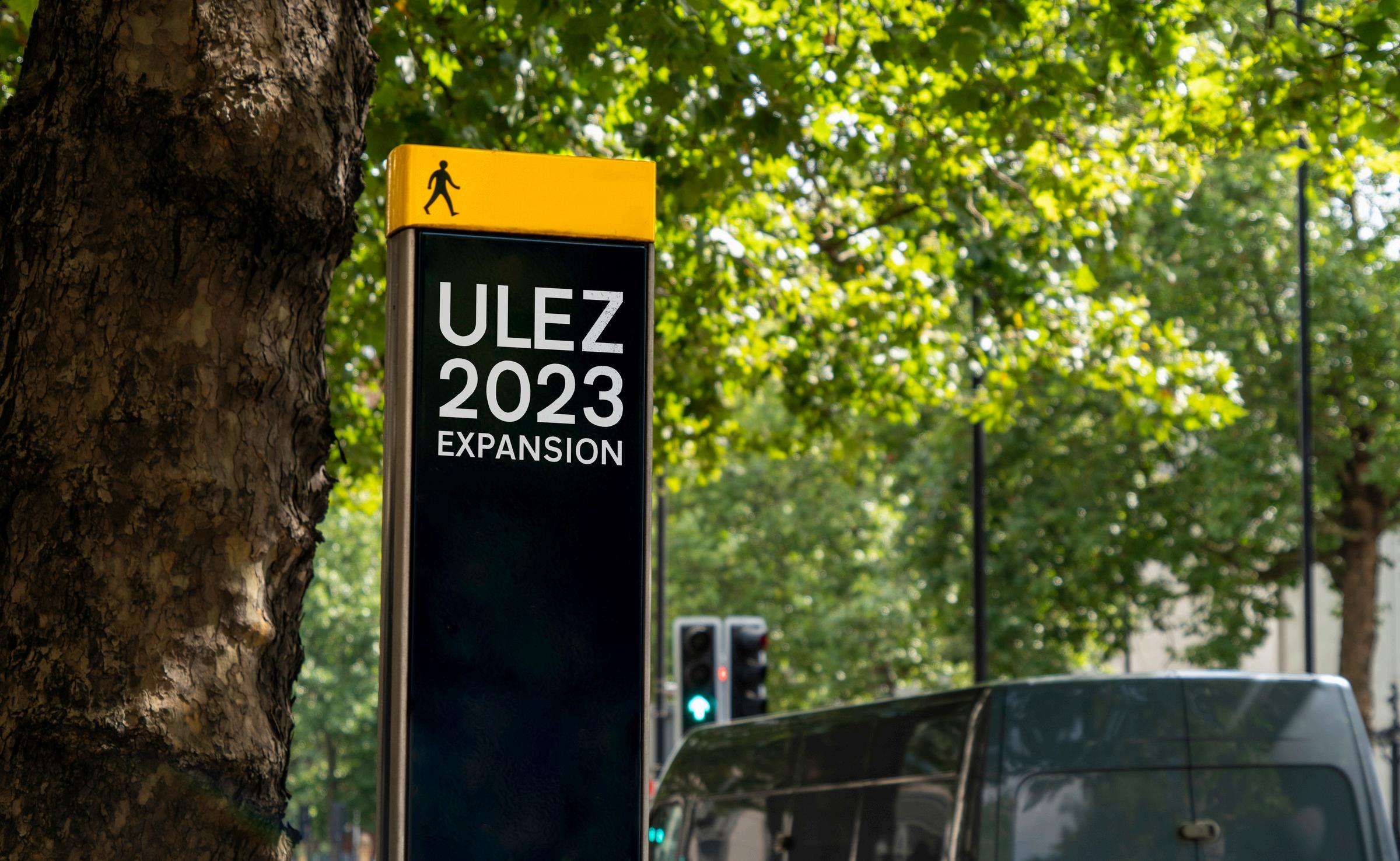BROADENING PERSPECTIVES THROUGH ACADEMIC EXPLORATION




BROADENING PERSPECTIVES THROUGH ACADEMIC EXPLORATION



As part of our ongoing commitment to stretch and challenge our most able pupils, all Academic Scholars at Lingfield College in Years 7–10 undertook an extended project this year, with a significant and enriching development to the format In addition to the traditional option of writing a research essay on a topic of their choice, scholars were also given the option to design and create an artefact accompanied by a written evaluation of its success. This broader framework allowed for a greater diversity of scholarly expression and enabled pupils to demonstrate intellectual curiosity, creativity, and analytical thinking in varied and meaningful ways
Whether through essay or artefact, the project encouraged pupils to pursue a topic they are passionate about and to develop key skills such as independent research, time management, evaluation, and critical thinking Supported by our Scholars Sessions and the annual Scholars Trip, this initiative continues to inspire a love of learning and academic exploration
“I am absolutely delighted with the quality of this d-thinking and
A huge well done to all of this year ’ s Academic Scholars for their outstanding work I look forward to celebrating with you at the Scholars Symposium on 4th June, where we will announce the prize-winners for each year group
The EPQ Club also continued to run successfully this year, with Year 8 and Year 10 scholars meeting weekly The Extended Project Qualification (EPQ), awarded by AQA, supports students in completing their scholars project and rewards their efforts with a nationally recognised Level 1 or Level 2 qualification
In addition to researching their chosen topic, pupils in the EPQ Club completed:
A project proposal
Research using both primary and secondary sources
A written report
A bibliography and appendix
A production log to track their progress
A final evaluation in both written and verbal formats



&

DO PEOPLE JOIN CULTS AND FOR WHAT REASONS DO THEY FEEL COMPELLED TO STAY?
HAS VIRTUAL REALITY EVOLVED, AND DOES IT HAVE A FUTURE IN OUR SOCIETY?
HOW WOULD THE NEW 2024 AMERICAN PRESIDENTIAL ELECTION – FAVOURING DONALD TRUMP – EFFECT THE WORLD IN THE NEAR AND DISTANT FUTURE?
WHY IS THERE A SEEMING INCREASE IN THE NUMBER OF PEOPLE BEING DIAGNOSED WITH NEURODIVERSITY AND ARE THERE ANY REASONS TO BE SCEPTICAL ABOUT THIS?
TO WHAT EXTENT HAVE WOMEN’S LIVES CHANGED SINCE 1950, AND ARE THESE CHANGES FOR THE BETTER?

IS ULEZ AN UNJUST TAX?
Written by Devin P

Competition is often perceived as a good thing in life The tenacity it drives, the teamwork it strengthens, the achievements you can collect from it It appears in almost every aspect of our lives, from watching Sunday’s football match to kicking the ball yourself, driving yourself or whomever you support to triumph, although losing sight of what that causes outside of your perspective
Often, people do not realise what hole they are digging others, or even themselves into For example, you ’ re always aware of your self-image, and that will boost when you win; when you don’t win, speculation of a victorious reality is almost impossible to suppress, weakening your self-esteem and your subsequent performance, acting as a plague immune to the origin, who is of course the victor Unfortunately, winners can also devolve, causing egoistic and narcissistic behaviour to endure, affecting the encouraged “good sportsmanship”
This is not only in sport scenarios Especially when the aftermath of these competitions affects the next years of aspiring participants, these effects can occur. For instance, when applying for a university or workplace, the prospect of failing to get to where you want to be is painful, causing self-doubt before the competition, and scarring regret after Envy and jealousy can develop against the successful, especially if they display selfish and unempathetic behaviour
The definition of competition is the activity or condition of striving to gain or win something by defeating or establishing superiority over others The term “winning” is ill-used The act of preventing another from success to form your own is an act of dominance, a derogatory act of territorial supremacy, which is what animals strive for in the wild We are not animals “Losing” is not well used either Consider the case of entering an art contest and being awarded second Thought #1, “Oh I was so close to winning!” Truth: competition is a binary process 1s, 0s Winners, losers No 0 2, no 0 9 Saying you were so close is seemingly a coping mechanism for loss Reality: there’s no distance, no span between winner and loser. The “closer” you are to the winner, the more you ponder the “ gap ” , although there is no numeral determining how “close” you were to winning, so there is no point regretting.


competitive attitude is inculcated into the student, who is trained to worship acquisitive success as a preparation for his future career ” Albert Einstein In this quote from Why Socialism? Einstein describes the competition of two identical corporate entities working for identical goals as being a waste of time and money, as evidenced by Apple and Google, and how a combined force of knowledge, resources and workforce would provide more efficient progress without wasting such to extinguish other companies with common goals
Competitive sport, a key organ in the body of competition, another enforcer of the hatred that competition comes equipped with Although we have come a long way from fighting to determine an “alpha”, narcissism and social Darwinism ruin the sportsmanship that organisers and players strive for Most cases occur during adolescence, but adults are also prone For example, the Russian doping scandal 68 athletes had resorted to drugging
provided Athletes have been known to have health issues due to the stress of competition
Drawing back to how these athletes achieve these opportunities in the first place, very few are actually selected to play a professional career, and even then the system is not equitable. For instance, a review by the Institute of Youth Sport (from Mugglestone et al ,) created a hypothetical example of relative age and the selective process between two “ average ” identical boys separated by 11 months in the same year group
Boy A, born on 1st of September 1990 and Boy B, born on 1st August 1991 are in the same class in a P E period on the 1st September 2004 Boy A is 14 years old while Boy B is 13 years and 1 month old. Boy A is bigger, heavier and more agile than Boy B despite being the same boy (clarifying there is no such thing as an average boy)
Boy A is selected to participate in the School Football Team while Boy B is not Both, when 18 and 17 respectively, applied for the Academy team, Boy A being admitted, Boy B being told “Good player but too small ” A, now 21, a constant winner of professional football faces problems that have been gifted The fact that he has had consecutive wins leads to his inability to lose, which causes burnout; the public follow that legacy, and bear extra weight onto that stress; but also, it leads to unneeded animosities, wrecking the sportsmanship once more; repetitive wins used as boasting and motive material; turning A into a Goliath with no David B, however, being banished from that arena, is cured His lack of competitive drive may have led to a more simple life, maybe not as glorified as A’s life, but manageable without the public, potential enemy teams, or even teammates or fans at his tail; he can focus on the more pressing matters of his life, providing him more time to be someone who puts collaborating first He is not exposed to the fire A burned in, and the frying pan B has been thrown out of, burns healed, while A, like many others, burn upon the roaring flame
The fire does, however, reach further than the pitch, even in miniature sparks. For instance, as Einstein had mentioned, the school classroom. When the teacher requests an answer, although a competition is not always foretold, one is certainly implied: children raise their hands to touch the ceiling, muscles straining, other arm supporting the aching tower; all that effort whether there is a competition or not, one “has” to wear the crown of class, not that anyone will remember half an hour onward The focus is misplaced: it should be on getting a correct answer, not who gives it The children put themselves before the goal of the question, which is to answer, for 5-minute glory It’s like the old saying, “If you and I were being chased by a bear, I don’t need to outrun the bear; I just need to outrun you ” Putting greed before sense, the tactic is to use your competition as leverage for our own success;
However, this is unnecessary Would you save yourself from a bear by sacrificing another person knowing that you could have focused on the main goal: running from the bear? Another instance, when talking about your holiday, then someone decides to one-up it by either overglorifying or lying about their own Here, their desire for supremacy, insignificant in the future, even for the one-upper, seems to be the priority over listening to what the original person has to say about their holiday, which is disrespecting that person and giving them a feeling similar to loss, seeing as a “buck” has won over the “herd”
These instances are key to revealing the true nature of the motives behind these social spores These examples are not the full extent, however Another scenario could be boasting, provoking one to disprove it The priority is claimed to be status, but this is something that humans should have moved on from eons ago, thus causing more problems, including the creation of competition within a group that is either competing as a ensemble or not at all, straining relations between members which can create an envious atmosphere, and over devotion to competition, dragging you away from family, friends, hobbies and interests It is true that competition is a significant figure in our daily lives, but that is not to say it is not as villainous as it is potent.
Looking back, the definition, the implementation, the weaponisation of competition, all have their unruly Darwinist roots, but looking further back to the roots of the word “competition”, a horror awaits The Latin word, “competitio” means “agreement” stemming from the past participle “competere” meaning “to agree, come together, meet” Similar to the root of the word “dictator” originally meaning “speaker of the people” now meaning an autocrat, competition, often perceived as a good thing in life, has warped, been infected, into the beast that the population has a ghastly lust for, digging them further down that hole no-one can, or will want to, climb themselves out of

Written by Ellie F

In this essay, I am hoping to explore whether the benefits of social media outweigh the harm it causes. I am going to look in more detail into specific benefits and harms
Social media is all over the news and the media likes to show us the harmful effects For example, the UK Online Safety Act and Australia banning social media for under 16s
But what, essentially, is social media? According to Oxford language, social media is websites and applications that enable us to create or share content or participate in social networking Furthermore, Britannica says social media is a form of mass media on the Internet, this includes sites such as TikTok, Instagram, Snapchat, X, Facebook, WhatsApp.
This topic interests me because, as a teenager in 2025, social media is a significant part of life I use social media in my day-today life and so do many around me, I also see multiple news reports as it’s a highly topical subject Alongside this, there is controversy between whether the different age groups, as parents and adults seem to have a more negative approach, which inspired me to explore this topic further
To find a general opinion of social media and what different age groups thought about the topic, I conducted a small survey I asked a range of people, aged 10-80, a few simple questions Firstly, is social media beneficial or harmful overall, what are the harms, what are the benefits?
I found it extremely interesting that the results showed a definite divide between people over the age of 30, and younger people Typically, those under 30 seemed to think the advantages were more relevant than the disadvantages, giving benefits such as positive influencers, entertainment purposes, keeping up to date with current trends, topics and affairs, community and connectivity, work and career objectives, digital literacy skills and physical and mental health support
However, most in the 30-80 category seemed to believe the harms were more of a problem These harms included negative influencers, cyberbullying, exposure to inappropriate content,
Social media is a new part of the world, creating many opportunities and benefits, it also has its unpleasant aspects For example, algorithms; social media algorithms are designed to personalise the content that users see on their feeds and for you pages based on previous interests, watches and searches This simply means that one search could cause the system to bombard your feed with similar searches
Obviously, this approach could be helpful in the way that it is completely customised to your interests however it impacts the way young people are influenced and could possibly form new opinions, views and beliefs The key problem with the algorithms is that the videos and information being fed to users is likely to be bias, providing them with a negatively one-sided way of viewing things Therefore, algorithms are unfortunately encouraging no diversity or open discussion around topics users are interested in, misinforming and negatively inflicting opinionated ideas on them for the future
Another harm is catfishing Catfishing is the process of luring someone into a relationship by means of a fictional online persona, according to Oxford language Consequences of catfishing could result in disappointment or a messy breakup but is often far more serious, especially in children, teenagers and young adults. These can include financial fraud, predatory sexual behaviour or sextortion
Many people are targeted on social media, especially adolescents via online platforms and many cases involve blackmail and/or sexual harassment The anonymity of users combined with the easy access to personal information is perhaps why catfishing is such a huge issue in today’s generation, sometimes resulting in young suicide or long-term mental health

Catfishing and fake social media accounts are frequently the reason why many parents and adults are so wary of their children using these apps because it’s scarily easy for predators to target young people
According to a 2022 UK survey, 22% of people expressed that they had been catfished and 40% said that they knew somebody who had been catfished
Cyberbullying is also a serious issue on social media affecting young victims which can lead to severe mental health issues, emotional and physical harm, depression, anxiety and low self-esteem
This type of bullying leaves little opportunity for victims to defend themselves and it can occur all hours of the day, every day, and often anonymously The largest problem with using social media platforms to bully or target a victim is that the harmful images, comments or videos are not just accessible to the victim but potentially showcased to hundreds if not thousands of users, making the victim feel threatened
Eric Alcera (Medical director for Hackensack Meridan Behavioural Health) says “People will do or say hurtful or demeaning things online that they would never say in person ” This is completely true as sadly it is common for bullies to feel more comfortable hidden behind a screen than they would in the real world This is why cyberbullying is increasing in children and teens as it is becoming an easier and more brutal way to bully their peers, as in many cases is relentless and hard to escape
Studies have shown that 26 5% of American teenagers have experienced cyberbullying in the last 30 days and in the UK 42% say they have experienced some form of online abuse/ hate or bullying
Further, ‘ an influencer’ is now considered a career pathway and many young people are inspired to become influencers, but what is an influencer?
An influencer is somebody with a social media platform who inspires others (often to purchase items) through their knowledge and relationship with their audience.
Influencers are often perceived as role models to the younger generation; however, this is not always a positive Content that influencers promote is sometimes negative or unhealthy, such as unrealistic body standards which in rarer cases could lead to eating disorders such as anorexia
certain way and receiving hate and threats regarding their posts Influencers are undoubtedly the cause of some negativity around social media, but there are clear positives to their platforms too
Although most damage caused by social media is the content on the screen, the amount of time spent on it is also a huge factor Too much time on screens can not only cause eye strains and neck pain but also social isolation. Research has shown that excessive time on screens, especially social media sites often lead to issues regarding social and emotional development, depression, sleep disturbances and most commonly anxiety Various studies prove that children that
In addition, social media sites are designed to be addictive, and the content viewers are being exposed to are not always completely real. Creators edited and filtered content creates followers with a warped sense or normality leading to unreasonable comparisons With these standards weighing them down, young people can sometimes develop illnesses such as body or face dysmorphia
have had their screen time managed by parents are performing better socially and academically than children that have not (these children are also more likely to develop some form of mental health problem)

Nonetheless, influencers themselves are often negatively affected by their career path, feeling pressurised to look or act a
Although there are harms, there are many benefits too One benefit is positive influencing Many influencers use their platforms to promote a cause such as body positivity, mental health awareness and social justice
Another benefit is keeping up to date with current affairs and trends Social media can be useful for improving knowledge, following experts and influencers, joining communities and creating and sharing content It is a great way to broaden your opinions and perspective on topics that interest you
Further, many people use social media for marketing, promotion and work purposes Many companies and self-employed individuals use platforms to help their businesses and reach a wider audience Engaging with customers can build stronger relationships and increase customer loyalty, also drive more traffic to your website 76% of small businesses who used social media to promote their business said they believed it to be a helpful tool and would recommend it to others
Many think social media is also beneficial to improve creativity and can be an amazing way for the younger generation to express themselves and feel like others express themselves similarly too For example, some TikTokers promote individuality and inspire people to be themselves and not feel pressured to be like people they see around them, at school and in their neighbourhood Social media is a perfect way of making people feel comfortable expressing themselves (through things such as style) without judgment from their peers
I understand that there are many harms and benefits associated with social media, however regarding some of the harms, social media sites are not entirely to blame For example, bullying and scamming has always been a problem in society Although it has exaggerated the issue by providing predators with anonymity and ease, I don’t think social media is the main problem in these situations I believe that with better regulations and communication with the government, these problems could be controlled, and more effort could be put into helping the people behind the screens



Written by Evan R
video games have evolved to develop skills such as problem-solving, teamwork, and strategic thinking. As modern life becomes increasingly shaped by technology, the impact of gaming on skill development is more relevant than ever. This essay explores how gaming enhances valuable abilities and argues that, when played in moderation, video games can be a powerful tool for learning and personal growth
The impact of video games is widely debated Many gamers argue that gaming enhances and develops their skill set Jane McGonigal, a game designer, states, ‘Games make us more resilient, creative, and optimistic problem-solvers ’ However, critics claim that gaming can lead to addiction and a reduced attention span They also argue that violent games may encourage aggression As research continues, many believe that moderation is key to maximising benefits while minimising risks This suggests that gaming can be a valuable tool for skill development when used responsibly.
Gaming plays a crucial role in developing essential skills such as problem-solving, teamwork, and strategic thinking, which are vital for success in both personal and professional regions By engaging with complex game scenarios, players can sharpen their ability to analyse situations, collaborate with others, and think critically, ultimately developing skills that are transferable to real-world challenges
Video games significantly boost cognition, strategy, and coordination, challenging players to solve problems and think critically Strategy and RPGs further enhance problem-solving, making gaming a valuable tool for real-life skills. Training with video games has shown significant improvements in multiple cognitive domains, including processing speed, memory, task switching, and mental spatial rotation
Video games also enhance visuospatial (the visual perception of the spatial relationships of objects) working memory and fine motor skills, particularly benefiting individuals with conditions such as ADHD Even brief exposure to commercial games has been found to improve perceptual skills, attention, and cognitive flexibility, demonstrating the potential of gaming as an effective tool for cognitive enhancement
For example, the game, The Legend of Zelda: Breath of the Wild (On Nintendo Switch) can develop cognitive skills It improves strategic planning, adaptability, memory, and resource management
This is because it is an open-world exploration and puzzlesolving game which requires players to think critically and adapt to different situations
Video games have been shown to enhance hand-eye coordination Many games require precise movements, which can improve muscle memory Improved coordination and motor skills can be useful in everyday activities such as writing For example, many shooter games and action games, such as Wii Sports can improve hand-eye coordination and reflexes Gaming consistently enhances reflexes through fastpaced challenges and rapid decision making
Video games significantly improve strategy and leadership skills by placing players in command roles that demand rapid decision-making and long-term planning In immersive gaming environments, players must utilise advanced strategic thinking and problem-solving abilities to accomplish objectives, manage resources efficiently, and balance competing priorities For instance, games like Age of Empires challenge players to build and manage vast empires, refining tactical kill hil l


Most multiplayer games require players to work together to achieve a goal, whether capturing an area or defeating an in-game boss, encouraging effective communication, strategic planning, and improved task management Many players also join online communities to share tips and overcome challenging levels, fostering social bonding and boosting confidence Scientific research indicates that cooperative gameplay can elevate oxytocin levels, enhancing trust, empathy, and overall social cohesion. Recent studies also show that such interactions improve cognitive flexibility and decision-making speed These skills transfer to real-world settings, easing interpersonal challenges and reducing stress during high-pressure situations like job interviews and collaborative work environments This research highlights gaming's potential to bolster personal and professional success
Multiplayer games provide a dynamic platform for gamers to develop essential leadership skills. In team-based scenarios, players assume leadership roles by coordinating strategies, assigning tasks, and maintaining high morale Research indicates that engaging in multiplayer gaming can enhance cognitive flexibility and social intelligence, supporting improved problemsolving and decision-making under pressure These experiences boost confidence, teamwork, and adaptability, equipping players with interpersonal skills valuable in academic, professional, and realworld settings Numerous studies confirm these benefits, showing that interactive gameplay stimulates neural connectivity and facilitates social skill acquisition, ultimately contributing to long-term success and enhancing overall performance
Adaptability and conflict resolution are crucial skills developed through gaming, preparing players for diverse, unpredictable environments
Embracing change enables gamers to swiftly adjust strategies, overcome challenges, and enhance resilience, resourcefulness, and problem-solving abilities By engaging in scenarios that require navigating disputes, negotiating compromises, and finding common ground under pressure, players refine their conflict resolution skills These experiences not only improve in-game performance but also translate effectively to real-world contexts. Gaming fosters personal growth, equipping individuals to meet evolving academic, professional, and interpersonal demands, ultimately contributing to longterm success Overall, the combination of these skills empowers individuals to face life's uncertainties with unwavering confidence
The integration of video games into education provides innovative opportunities for interactive learning In schools, gaming technology and learning simulations are increasingly used to engage students and offer hands-on experiences that enhance understanding and retention of complex concepts These simulations allow learners to experiment in risk-free environments, promoting critical thinking, problem-solving, and collaboration This digital approach fosters creativity and adaptability while encouraging personalised
learning experiences that accommodate diverse learning styles Recent studies indicate that educational games boost motivation and academic performance, making them a valuable tool in modern curricula and professional training programmes, ultimately preparing students for future challenges successfully
Video games cultivate essential professional skills by simulating fast-paced environments that demand rapid decision-making, technical proficiency, and creative problemsolving These interactive experiences challenge players to adapt quickly, think innovatively, and master complex tasks, which translate into improved performance in technology-driven workplaces Skills such as problem-solving, decision-making under pressure, and adaptability are highly valued in industries like IT, management, and creative fields By using these abilities, gaming not only boosts career success but also prepares individuals for modern professional challenges Recent studies confirm that gaming enhances cognitive flexibility and technical skill application, ensuring long-term growth in competitive markets
Video games often involve repeated failure before success, fostering resilience and perseverance

Whether it’s losing a boss fight or failing a mission in Grand Theft Auto, games challenge players to persist, learn from mistakes, and refine their skills. This perseverance translates into real life, encouraging a growth mindset where failure is seen as an opportunity to improve rather than a setback Overcoming difficult in-game challenges builds mental toughness and patience, making players more determined in the face of real-world obstacles Ultimately, gaming helps develop resilience, enhancing personal growth and the ability to navigate challenges effectively
I have researched into case studies highlighted the educational benefits of gaming. Minecraft: Education Edition fosters creativity, collaboration, and problem-solving by engaging students in real-world-inspired projects, enhancing teamwork and computational thinking Likewise, Portal 2 develops critical thinking and logical reasoning through complex puzzles that challenge spatial awareness and strategic planning Studies indicate that these games enhance cognitive flexibility, problem-solving abilities, and student engagement, reinforcing the value of video games as effective educational tools
Critics argue that video games can have negative effects when played excessively. Concerns include dopamine addiction, poor mental health, and social disconnection, as well as aggressive behaviour and reduced face-to-face communication Excessive screen time may also impair physical well-being While these issues are serious, many experts advocate for moderation and responsible gaming With appropriate limits and balance, the potential drawbacks can be reduced while still allowing players to benefit from the positive aspects of gaming

Critics often highlight several negative aspects of excessive gaming
Concerns are raised that excessive gaming may foster negative behaviours, such as aggression and decreased face-to-face communication skills Some research indicates that constant immersion in virtual environments might hinder physical health and overall well-being While these criticisms are valid, many experts suggest that with moderation and responsible gaming practices, the potential risks can be reduced. Therefore, it is important to balance gaming with other life activities to minimise these adverse effects while still enjoying its benefits
Despite criticisms of gaming’s negative effects, many experts argue that responsible gaming practices and balanced play can reduce risks like addiction and aggression With proper self-regulation and time management, gamers can reap the benefits without compromising mental and physical health
Overall, I have learnt that video games enhance cognitive skills, problem-solving skills, and coordination while fostering leadership, adaptability, and teamwork Their educational and professional benefits are significant, though responsible gaming is essential to reduce potential risks and maintain balance
Video games foster critical cognitive, social, and professional skills. meanwhile, balancing their use is essential to minimize risks like addiction and aggression Responsible, moderated gaming reliably supports personal growth and can significantly enhance both academic and workplace performance In general, I think that gaming will be a significant aspect of learning in the future Sometimes it can be adding leaderboards and points in a class to inspire them to want to learn However, it could be using only games to represent a virtual environment or improving (mentioned) skills
Written by Josh L

Iknow from my own experience that if I have low confidence levels when playing sports, it not only affects the excitement that I have when playing but also how well I play and the effort I am able to put into matches. I wanted to research whether low confidence also affects the best athletes in the world and if pressure levels can severely impact an athlete mentally and physically Whether it is the World Cup final, a critical penalty, or a world record attempt, I want to understand if the psychological state of an athlete can influence the final outcome. Most of my research has come from watching videos from athletes like Erling Haaland and the England football squad talking about anxiety and if coping mechanisms help to overcome it. I have also read articles from iCliniq.com and from sports psychologists at Loughborough University.
Performance pressure, high expectation levels either put on themselves or from the media, and the fear of failure can all create an exciting but sometimes hostile environment for elite athletes
The main cause for athletes feeling pressure and having high stress levels is due to Performance pressure, which can have all kinds of mental and physical effects on an athlete Performance Pressure is stress that has been put on an athlete which could have been from their coach, sponsors, fans, or most commonly, the athletes themselves The higher the level of competition, the more intense the pressure becomes, which can lead to heightened anxiety and stress The most common cause is from the fear of failure; this means that an athlete is too scared to make mistakes so they may play out a scenario safer than they should; missing out on a game winning chance or taking too safe of a penalty, possibly losing their team the game
Internal pressure is another major cause of Performance pressure This is when athletes set ambitious standards and put pressure on themselves to reach them, and if they do not meet those standards it can lead to doubting their skill, ability levels and lead to them losing confidence Pressure can affect an athlete physically as well; leading to increased muscle tension, causing athletes to tense up and reduce the pace of decision making and movement or even injury
There are, however, many ways that athletes can cope with elevated levels of stress and pressure Athletes often get overwhelmed and only focus on the result which can lead to intense pressure; to cope with this, athletes can do mental preparation techniques which improve mental toughness and enable the athlete to be calmer in high pressure situations

Simulating high pressure situations in training can help athletes become more familiar with sensations and emotions that they may experience in a competition or match However, if training is a cause of stress for the athlete, they may start to lose the drive and discipline to train one hundred percent which can lead to them losing their place in the team, causing more stress and angst Avoidance coping is another technique that can be used, this is when a person changes their behaviour to avoid thinking about, feeling, or doing difficult things but this will often not be a positive technique for athletes to use if they want to continue to improve
The effects of pressure on sports performance can significantly impact athletes in numerous ways For example, if an athlete suffers with performance pressure, they can focus too much on the details If they do focus too much on the details it can be disruptive, for example if a runner focuses too much on stride length or breathing patterns, instead of relying on rhythm it can actually disrupt their stride and cause them to make more mistakes than they would if they ran without as much focus on the details which may cause them to stiffen up in their stride in a race In extreme cases athletes can experience something known as “choking ”
Choking is when an athlete has such elevated expectations put on their shoulders that they fail For instance, if a team had a large lead which they squander, this could be referred to as choking Impaired decision making is also a large factor that stress, and performance pressure can cause This is when an athlete can make choices or decisions that they may have made differently than if they were playing with full confidence For example, they may make a safe pass rather than trying to make an ambitious pass that could lead to a goal, instead transferring the responsibility to someone else
Pressure and stress can also have huge impacts on athletes mentally as well as physically If an athlete is feeling as if they are not playing as well as they can, they can lose the motivation to get out of bed and train to their maximum effort This can have a knock-on effect to their performance as well, because if they are not training their fitness levels will start to decline and they will not be up to standard with the rest of the team in terms of new tactics and strategies Pressure can trigger a range of negative emotions, such as fear, anxiety, frustration, and disappointment These emotions can increase the effects of pressure further, leading to a negative cycle that becomes increasingly difficult to break as time goes on
Athletes under pressure may also get distracted and find it a challenge to focus on the task at hand as their concentration levels can drop drastically. Things like the media, fan feedback or personal issues can cause their minds to be in other places and not be fully focused on the picture in front of them Depending on the level of competition or importance of a match, an athlete can experience a higher level of nervousness and anxiety that can affect their decision-making and overall confidence Performance pressure, stress and anxiety can have all sorts of negative impacts on an athlete, whether it is physically in a match scenario or training, or if it affects them mentally taking their minds off of the task at hand and losing passion and motivation for their certain sport
Individual sport athletes can experience increased anxiety compared to an athlete playing in a team sport Individual athletes tend to set intense personal goals for themselves However, both scenarios demand mental toughness, in individual sports the emphasis is on self-reliance and management
The battle is often against your own doubts and self-pressure as you do not have many people to rely on and you are the only one in the spotlight In team sports, the challenge usually includes factors such as team harmony, communication, and the ability to function under pressure placed on you as a group
A study from Taylor & Francis shows that for 29% of the athletes, low confidence came hand in hand with lack of effort or fight For example, in this study a swimmer stated, “I should have been going on it, but instead of standing there and believing that there was no-one else that can beat me, when a girl was on my shoulder on the last length I just let her pass me ” This study demonstrates that low confidence can cause a lack of self-motivation and drive, therefore they do not have faith in themselves and lose determination. From my own experience, I know that having low confidence in yourself can lead to not giving one hundred percent and possibly not going into tackles or challenges as hard as you can because the worry of something going wrong takes over
Low self-confidence can cause players to not play to their full potential and not give their maximum effort In conclusion, it does not matter whether you are playing grassroots football or if you are Cristiano Ronaldo, low confidence or feeling pressure can have a huge and negative influence on the athlete themselves but also their performance on the pitch. Low self-confidence can be caused by many varied factors and athletes can experience multiple negative results There are various knock-on effects for athletes, mentally and physically, for example, fear of failure is all in your mind, but it can also lead to muscles tensing up which is an impact that comes physically with pressure and stress It can affect athletes differently depending on whether they are playing a team sport or an individual sport Pressure in sports plays a huge factor in terms of elite athlete’s well-being but also their performance. If an athlete can embrace pressure and use it as an opportunity to grow stronger, they can reach their full potential but if they just let the pressure get to them and lose confidence it can have incredibly negative effects

Written by Josh R

Asignificant number of people engage in physical activity. Brown (2024) states that 64% of the UK population regularly participates in sports, a figure that rises to 72% when including leisure activities like hiking. Sports are often seen as a means of staying fit and having fun, but their impact extends beyond physical health. The relationship between sports and mental health is widely recognised Many people believe that engaging in physical activity can improve mood, reduce stress, and enhance self-esteem As concerns about young people’s mental health are on the rise, it is important to understand how sports can influence emotional and psychological well-being.
This essay will explore how participating in sports can benefit young people's mental health, including psychological, social, and emotional benefits. It will also discuss the potential challenges of sports, such as pressure to perform, the risk of injury, burnout and toxic sports cultures By examining both benefits and limitations, this essay aims to evaluate whether sports truly enhance young people's mental health.
One of the primary reasons that sports improve mental health is the psychological benefits of physical activity Exercise triggers the release of endorphins, hormones known to improve mood, reduce stress and regulate emotions (Newport Academy, 2024) These "feelgood" hormones are responsible for naturally making us feel happier and more relaxed. As the World Health Organization (2022) suggests, physical activity is often described as a powerful means of "freeing the mind " Studies have shown that even just 30 minutes of exercise daily can help reduce stress, improve sleep and boost emotional well-being (Cleveland Clinic, 2022)
There is a lot of evidence linking sports participation with reductions in anxiety and depression, and diverting young people’s mind from negative thoughts (Perryman, 2024). According to Harvard Health (2019), study by the Harvard T.H. Chan School of Public Health found that regular exercise reduces the risk of depression by 26% Team sports,
in particular, provide social support, helping to reduce feelings of loneliness and anxiety Furthermore, the sense of achievement that comes from improving athletic skills or achieving personal goals can significantly enhance self esteem Whether it is scoring a goal in football or reaching a personal best in swimming, these achievements build confidence and a positive sense of self.
In addition to mood improvement, physical activity also enhances cognitive function
Exercise increases blood flow to the brain, which can help improve focus, memory and concentration A study by the University of British Columbia found that aerobic exercise strengthens the hippocampus, the part of the brain that is responsible for learning and memory
As young people develop their skills through sport, they are also improving their ability to
concentrate and problem-solve, which positively benefits both academic performance and daily life
Sports also play a vital role in helping young people develop socially and emotionally Participating in team sports, helps develop essential life skills including teamwork, communication, and leadership. Team sports require players to collaborate, strategize, make decisions quickly, and help each other out These skills are valuable not only in sports but also transferable to other areas of life Such experiences prepare young individuals for future professional environments, where teamwork and effective communication are highly valued These abilities are not only beneficial in sports but also enhance job prospects, as many employers seek candidates capable of co-operating and communicating well in group settings.


Being part of a team also helps young people build strong social connections Teammates often become friends, and spending time together can again reduce feelings of loneliness and Isolation, particularly for young people who struggle with social anxiety or have trouble making friends Sports create opportunities for socialising in a supportive environment, which can improve communication skills, empathy, and selfconfidence For example, playing football with a group of friends can create bonds that last beyond the field
Studies show that participation in sports can also help build emotional resilience – the ability to bounce back from challenges, which is an essential life skill Young athletes regularly set personal goals, such as becoming top goal scorer in football or hockey or mastering a challenging skill, which requires hard work, dedication and perseverance.
These experiences build resilience, helping athletes cope with setbacks, such as losing a game or not performing to their expectations Learning how to overcome difficulties in sports helps young people develop patience, determination, and a growth mindset, all of which are important for mental health Even if progress is slow, sports teach the value of persistence and hard work
These are not only valuable skills that enhance performances in sports but also apply to everyday life While the benefits of sports are clear, it is also important to consider the challenges and potential risks One of the biggest challenges is the pressure to perform In competitive environments, athletes are often expected to reach elite levels, win at all costs, together with meeting high expectations set by coaches, teammates, or even themselves This pressure can lead to stress, anxiety, and self-doubt Young athletes may feel that their value depends on their performance, which can harm their mental health.
The fear of failure is a real problem for many young athletes When the pressure to succeed is too high, it can take away the enjoyment of the sport Instead of having fun, young athletes might start to focus only on winning or meeting expectations This can create increased pressure that some young people are not mature enough to handle According to Kindbridge (2022), this fear of failure can also lead to performance anxiety, where athletes feel nervous and struggle to perform at their best In extreme cases, this anxiety can cause young people to quit sports altogether
Injuries are another risk associated with sports. While exercise and physical activity are important for health, contact sports like football, rugby, and hockey carry a higher risk of



In high-pressure environments, young athletes may feel their self worth is tied to winning, competition, or meeting unrealistic expectations Some coaches and teammates may push athletes too hard, leading to stress and burnout, and even verbal or emotional abuse
Such environments often prioritise success over well-being, discouraging athletes from speaking up about mental or physical struggles. If the culture values success above everything else, athletes might feel ashamed or afraid to admit when they are struggling emotionally or physically This can lead to feelings of shame, frustration, self-doubt, loss of motivation, isolation and depression, negatively affecting sports performance, mental health and academic life
Despite the challenges, the benefits of playing sports far outweigh the risks Sports can help young people develop valuable life skills like teamwork, discipline, and resilience, while also improving Mental health by reducing stress, boosting mood, and increasing self-esteem However, it is important to balance competition with enjoyment When the focus is solely on winning, sports can become stressful and take away the fun, with a focus on personal growth rather than solely on winning. To ensure sports have a positive impact, it is important to create a supportive environment where young athletes feel encouraged to enjoy the game, focus on personal growth and not just on outcomes
Coaches, parents, and teammates all play a role in ensuring that sports remain a positive experience for young people Coaches should focus on building athletes’ confidence and teaching them how to handle challenges, while also promoting balance and self-care Parents can support by encouraging their children to participate in sports they enjoy and by reminding them that their worth is not tied to their performance Teammates should support each other, especially during difficult times, to ensure that young athletes feel encouraged and valued
While injuries cannot always be avoided, it is important for young athletes to prioritise self-care and recovery A strong support system of teammates, coaches, and family can help them through the recovery process. Although toxic sports cultures can have lasting effects on mental health, having a strong support network and creating an environment that values well-being over success can minimise these negative outcomes
Overall, the rewards significantly outweigh the negatives The positive impact of sports on young people's mental health is clear By fostering the right environment and addressing the challenges head-on, sports can continue to be a powerful tool for enhancing emotional and psychological well-being
Written by Lily-Belle T

So, what defines a cult? Wikipedia defines a cult as a term often applied to new religious movements and other social groups which have unusual, and often extreme, religious, spiritual, or philosophical beliefs and rituals. Extreme devotion to a particular person, object, belief or goal is another characteristic often ascribed to cults In my opinion, I believe this is a solid way to describe a cult as it allows an individual to interpret the definition in any way they please However, what can be added to this definition is that, from my loose research on this part of the topic, there are four different types of cults: doomsday, political, sex and religious. In every cult there is obviously a leader (most often described as someone who is charismatic, witty and manipulative) each with their own different ways of convincing people to join their ‘movement’ and follow them with absolute, unquestioned and committed devotion Cults are looked down upon by those ‘outside’ as dark, dangerous communities where free will is not considered an option
Depending on your own interpretation as to what a cult is, your mind may stumble upon a question of why? Why do people join cults? Why would they even want to? Why would they feel the need to follow and devote their entire lives to a human much like themselves?
To simply put it, many cults prey on individuals who have reached an unfortunate point in their life Whether it be that they are a drug addict, teenage runaway, abuse survivor, someone who may have lost a person close to them through death or a breakup, someone who is suffering from different mental health issues or insecurities or anyone who feels disconnected from the society around them and therefore may most likely be vulnerable It could be someone that is looking to ‘fit in’, gain a sort of connection to those around them that may be much like themselves. Weak-minded people would be seen as something similar to gold in the eyes of a cult leader: nothing more than a new follower to sink their claws of manipulation into and to teach how to feel, think and believe
They are seen like simple prey, easily able to be tricked into falling victim to coercion and brainwashing; convince them of the cults beliefs and ways – that it is fact and law Eventually, the victim would most often then become utterly devoted to the leader and their beliefs, no matter how outlandish these beliefs may be. The individual assigns their entire life to the leader’s cause – disconnecting themselves as a whole from (if they have them) friends, relatives and people, who are not within the cult, in general Having said all of this, not everyone who joins a cult is ‘lost’ or ‘broken’; in fact, there are many people who simply join because they want to They could be influential, wealthy, wellconnected or intelligent but these individuals cannot escape the discerning desire to participate in the cults’ beliefs.

However, dwelling on this, a thought crossed my mind of the psychology behind all of this: how could intelligent or logical, strong-minded people possibly believe in what the cult leader could be spouting just to gain followers? Of course, those who are weak-minded are more susceptible to anything someone, who they deem is ‘smarter’ than them, tells them, believing it is a mere fact that many people agree on But then, surely an intelligent individual would not fall for such things that a cult leader would tell them Obviously, some things that the cult leaders declare can be true – or rather, things they believe to be true (for example, most religious cults involve the cult leader twisting the words of the Bible to how they see fit).
Well, using simple research, I found a logical explanation Purpose Much like people who have lost their way in life, even the smartest of those among us may find themselves searching for a purpose; a reason to use their intelligence And so, they turn to cults – places in which they can possibly feel that they could be of some kind of use to those around them; where their logical thinking can have purpose Besides, cult leaders are made out to be very coercive people by basic definition – they are, for the most part, very smart and charismatic themselves – and possibly attempt to relate to these strong-minded people to further their convincing.

And so, they turn to cults – places in which they can possibly feel that they could be of some kind of use to those around them; where their logical thinking can have purpose Besides, cult leaders are made out to be very coercive people by basic definition – they are, for the most part, very smart and charismatic themselves and possibly attempt to relate to these strong-minded people to further their convincing
Referring to my point above, cult leaders can be highly intelligent, charismatic and excellent at persuading people to follow and listen to every word they say without hesitation or question They strive for utmost devotion and faithfulness from all their followers and demand that their ideas, needs and desires overpower any thoughts or feelings that their followers may experience within themselves; whether it is hesitation or a feeling of reluctance to obey what is set upon them
These independent thoughts, views and ideas will gradually be erased The leader of a cult has an inflated sense of importance and connection to greatness going as far as to sometimes claim that they are either a prophet of a god/goddess their followers may worship or even the god/goddess themselves This is an example of how a leader can do most anything without any repercussions or questions from the members doubting their behaviour, actions or what they ask their members to do Their power is overwhelming and undeniable
As a small example of this, one of the world’s most chilling cults as defined by ‘France 24’ was the most dramatic mass murder suicide in history Whereby over 914 of the cult members died due to being given poison or shot in Guyana in November 1978 Another was that of a cult going by the name of ‘Heaven’s Gate’
led
by Marshall Applewhite – whereby they believed that the arrival of the Hale bop comet was a sign for them to leave earth Another mass suicide of brainwashed people, a terrifying example of the power that these leaders have over their followers, and the followers over each other
Gradually getting to know their unsuspecting potential recruits, the recruiters are also able to learn more about their targets and may purposefully affect something in the target’s life and leave them vulnerable, susceptible to the cult's ideals A casual approach to slowly net their unsuspecting prey, like a salesman selling their wears in a subtle seemingly friendly, but persuasive approach Now, moving onto the next part of my essay: For what reason do people feel compelled to stay? Obviously, this could be for a number of reasons –some more complex than others. For example, starting off with children who have grown up in a cult environment, they may believe that there is no reason at all for them to leave
Many children have been taught that the environment that they live in is completely normal, and so, as young children do, they believe and become victims of the convincing sounds of elders’ voices and question nothing about the cult’s teachings, lapping up every word as a kitten would milk. They do not know any other life, and so continue to be part of the cult In religious cults, promises of enlightenment, eternal life, divine magic and life advancement through a specific religion or belief system have proved to be powerful magnets when it comes to persuading individuals to continue to stay
So, how do people get roped in, convinced to join a cult? Many cult leaders do not actually meet or interact with their followers; they leave their current members to do the recruitment for them.
finding prospective followers and enrol people to join their movement in many different ways For example, In the cult Children Of God, David Berg (the leader) created a strategy to recruit new individuals by hiring attractive women to go out and ‘fish’ for new recruits – later being named ‘flirty fishing’ – which would work out very well for the man and end up with him becoming the leader of a world wide cult.
However, other ways that a leader would get people to participate in their cults would involve members going to places you might expect to meet new people: social media, discussion groups, community clubs, social events and the like Typically, non-threatening, public situations which would naturally mean that people would feel comfortable and at ease not suspicious in any way, allowing the unsuspecting potential new recruits to gain trust and become easily manipulated into the existing members ways, views and ideas.
For some, it is a reason for a ‘healthy lifestyle’ The coercive groups can instil these new ‘healthy’ habits via manipulation techniques: discouraging previous habits and subtly suggesting new ones, isolating the members from family and friends that encourage or enable an unhealthy dependency on the cult, ‘pseudo-professional guidance’ that steers the cult member away from unhealthy vices or practices and towards the cult’s ideologies, etc Knowing that if they were to leave they would be isolated and would not be permitted to contact the group any longer. They would be disconnected completely Thus bringing on sadness, anxiety, loneliness difficulty to reestablish themselves in the outside world having been so used to the confines of the cult
Uncertainty for what the future will hold for them Losing the ‘safety net’ of the cult that they have become accustomed to If they were to leave they would lose all that they had or thought that they had being within the structure of the group.
Written by Matthew A

The reason that I chose this question is because recently I have started to have an interest in Virtual Reality, and I was wondering if it might have any helpful or life-saving applications in our society Throughout this essay I will be answering this question, as well as researching the rise of this technology I predict that unless this technology becomes cheaper and lighter, it probably wont be applicable in most future environments However, there is a few situations that could really benefit from VR which I will mention in this essay I will also discuss these challenges/limitations of this technology, because as much as it could help, there will be many challenges to overcome in the future and these challenges might affect the popularity of the technology as a whole, meaning that it might fail
The first ever technology developed similar to modern VR tech was in 1957 by Morton Heilig, an American filmmaker He created the “Sensorama” which was a large booth that could fit up to four people at once, and you would put your head in it It used full colour 3D video as well as a 3D screen, stereo audio, a vibrating chair, smells and atmospheric effects such as wind After this in the year 1968 Ivan Sutherland who was a professor of Computer Science at the University of Utah, with the help of his students developed the first ever head-mounted device (or HMD) which he decided to name the “Sword of Damocles ” This device had to be connected to a computer and was suspended from the ceiling as it was way to heavy to sit on your head
This heaviness and ceiling-mounting were the reason it was given the nickname “Sword of Damocles”, which means an impending disaster or a constant threat of danger Throughout the 1980s and early 1990s many companies had begin creating and researching this type of technology, as they realised that this might be the technology of the future age For example, the company VPL research made a multitude of VR gear products such as the “DataGlove” or the “EyePhone” Other big gaming companies such as Sega or Nintendo also attempted this but the technology was not yet refined enough for this to go anywhere During the 2000s and 2010s, the development of powerful graphics, motion tracking and smaller components has led to a more modern VR revolution, however there are still major challenges to this which have not yet been resolved In 2012, Oculus VR (which were soon after acquired by Meta Technologies) launched a few newer headset models that really changed the way companies saw this tech After this, competitors such as Valve Index and PlayStationVR soon launched to catch up to this new wave of technology
This brings us to today, where VR technology is better than ever, with cutting edge graphics and motion detecting VR has come a long way, from a professor and his students creating a device to a large-scale industry with major competitors achieving and refining the technology


There are many different reasons that VR might not work as a mainstream technology, the largest of these being the high cost of equipment This includes the cost of the VR headset itself, as well as the hardware necessary to run the VR applications, such as powerful computers or graphics cards This means that it can be difficult for consumers or enterprises to afford the equipment and therefore access the technology. Another challenge of this technology is the technical limitations of the hardware
Despite all the recent advancements, VR still faces many issues such as motion sickness, low resolution and latency issues These can all disrupt the immersive experience Low resolution displays can make the software look pixelated, therefore ruining the realism of the environment The most interesting challenge that this technology has is actually consumer perception For example, in an interview, 61% of Americans have no interest in purchasing or owning any sort of VR technology for the reason that they “just aren't interested.” The final reason as to why VR might have limitations is the fact that cybersecurity and data protection is going to become increasingly more necessary VR app developers must ensure that their data is secure and protected
Despite all of these challenges that VR will have to overcome, for example, Meta earned $2 146 billion throughout 2024 from just headset sales, which is 13% more than in 2023 I believe that as VR continues to evolve throughout time it might overcome these challenges in certain ways Another challenge VR faces is the lack of standardization across devices and platforms Currently, there are multiple different VR headsets with usually no cross-compatibility, making it difficult for developers to create universal applications that work on all devices The physical space required for VR is also a significant limitation, as users may need a clear area to move around otherwise they might get injured Also, the long-term effects of using VR are still largely unknown, meaning that there could be risk of eye strain or a risk of other illnesses VR experiences can be isolating, as users are fully immersed in a virtual world, which could lead to social disconnection or feelings of depression and loneliness for some users Lastly, the development of VR content is still limited, with a lack of engaging experiences in comparison to other forms of media like gaming or films.
There are so many applications and uses for VR It also happens to be one of the technologies with the highest projected growth in the future “Investment in VR and AR will multiply by 21x over the next four years ” - Forecasts from IDC research This technology is hopefully going to help businesses and corporations enter the digital age
One use for VR that is already starting to be used is that of healthcare and therapy VR is already used for pain management, surgical training and exposure therapy All patients recovering from strokes, any surgeries or injuries can benefit from this technology as they recover. In July of 2024, a study was done with 179 patients where half were subjected to traditional pain treatment, and half used a VR device After 8 weeks, 46% of the people who used VR said that it reduced the pain by more than half and around 26% of the people who used traditional methods said the same thing As well as this, VR can also be used in mental health therapy XR health has a reported success rate of between 66% and 90% for those with PTSD and has shown promising results for various other mental health illnesses and disorders
As well as in the healthcare industry, VR can also be used for education or various training environments For example, VR can provide immersive learning experiences or realistic job training for various jobs such as astronauts, pilots and medical professionals (like surgeons) “Virtual reality can improve education by providing students with memorable and immersive experiences that would otherwise not be possible.” - immersionvr.co.uk. Also, VR can be used for training scenarios, where trainees would enter a 360 Degree learning environment
This could be useful for certain workplace scenarios that used to be too difficult or expensive to train for (Such as police work, disaster preparation, hazardous material spills etc ) The only downside to this new era of learning is that it may still be unaffordable for small businesses or companies, so until it gets cheaper it might not be a viable option
Conclusion
In conclusion, I believe that VR could be the new up and coming technology that could change the way we do things, but in order for this to happen, there must be major technological advances in terms of graphics drivers, computer power and heaviness of technological parts If this doesn’t happen, then I believe this technology will fail due to it not being able to keep up with demand Many companies such as Meta Quest are already looking into this and ensuring that this technology will help the world Throughout this essay, I have gained a better understanding of the current state of VR technology, as well as its potential, along with the challenges it is going to face at some point.

Written by Nathaniel H-B
The return of Donald Trump to the white house will affect many countries in the world, whether that is a positive thing or a negative thing, we will find out in this essay. During Trumps first term he released the ‘America First’ policy, this was to put American interests above international cooperations and limit its involvement in global affairs such as Russia invading Ukraine and the IsraelPalestine conflict. This drastically changed US foreign relations. Due to the rising conflicts in Eastern Europe and the Middle East, this topic will show the importance of how the return of Donald Trump might change the course of these conflicts. This essay will explore the long-term and short-term impacts on countries such as Ukraine, Russia, Israel and Palestine due to the winning of Donald Trump in the 2024 American presidential election It will also discuss the potential impacts on the US and its political status
A poll taken between November 22, 2024, and January 7, 2025, states that 54% of Ukrainians view Donald Trump's return to the presidency as more positive than negative for Ukraine This is quite surprising because in the past, the USA has typically sided with Russia, take WWII as an example
Although, since his return, Trump has managed to cause a 30day ceasefire between them. This makes it clear Trump does not want any intention of essentially ending a country, but rather just wants to resolve the issues at hand Furthermore, Trump has directly engaged with the Russian President, Vladimir Putin, to discuss potential ways of solving the conflict
With Russia still at war with Ukraine, Trump has unexpectedly given Ukraine intelligence and military aid, although this could just be for Ukraine's natural resources, such as critical rareearth elements, oil, and gas, it has drastically supported Ukraine's defences
In spite of the fact that the US has seemed to do nothing but support Ukraine in the war against Russia, Trump has temporarily halted military aid to Ukraine, this is because: he i d f Uk i i i i i h R i h d
Additionally, the US has pressured Ukraine to cede territory, such as Donbas and Crimea to come to peace Due to Trumps previous threats to leave NATO and current policies, the US’s commitment to the alliances mutual defence clause has been questioned This changeability could encourage Russia to be more aggressive, leaving Ukraine more vulnerable
A survey by the Levada Center, in February 2025 including 1,615 attendants across 50 Russian regions, found that 30% of Russian adults now have a positive view of the US, up from 16% in September 2024 These results clearly show that Russia favours Donald Trump over Biden This makes sense because Trump has significantly assisted Russia with trying to find a conclusion to the Ukraine and Russia war For example, he has put in place ceasefires between them and had direct discussion with the countries president to try and resolve this ongoing conflict Also, since Trump and Putin's relations are on good terms, investors are predicting that Trump will lift economic sanctions against Russia, this could cause a potential rise in Russia's economy, due to the fact it has brought attention to Russian assets, such like bonds and ruble. Additionally, Trumps praise of strongman leaders could give Russia more freedom to d h h d i i h h f h US



impacting the way Russia trades with these countries Moreover, Trump’s attempt to weaken Russia and China’s alliance could leave Russia in a less stable and weaker position, this is because Russia relies on China economically greatly, it could also give Ukraine an easier fight back as Russia won't be as economically stable On top of that, Global South nations dislike Trump which could destroy Russia's efforts to be seen as a leader to them because of the relation between Trump and Putin Finally Trump’s interest to find a quick ending to the conflict between Ukraine and Russia could force Russia into adjustments it is not ready to make, perhaps terminating its strategies
A Channel 12 News poll showed that 66% of Israelis saw Trump's return as positive, with only 17% in favour of Vice President Kamala Harris This could be because Trump is continuously supporting Israel, which includes strengthening diplomatic ties and supporting Israel's strategic goals in that region Additionally, the US is vigorously aiding Israel with sturdy military support, even securing them access to advanced defence tech and intelligence sharing Furthermore, Trump released the Abraham Accords in 2020 essentially creating a peace agreement between Israel and several Arab nations, now that Trump has returned, he could extend these accords and encourage more Arab nations to join, reinforce the already signed agreements creating increased trade, security cooperation, and tourism with Israel, also stronger military and economic collaborations between Israel and Arab states Above all, the US is anticipated to pursue support with Israel in international organisations, which will counter actions that seem biased, therefore boosting Israel's global political stance
The US clearly has a good relationship with Israel, this might seem like it a positive thing for Israel, which is not wrong in some circumstances, but, the US’s clear preference of Israel could isolate other Middle Eastern nations, this could complicate Israel’s political strives and potentially and make harder for Israel to maintain good relationships with other countries and international organizations Moving onwards, Trump's past policies have been quite pro-Israel, such as his decision to officially recognise Jerusalem as Israel’s capital and move the U S embassy from Tel Aviv to Jerusalem – this could cause Palestine to engage in talks less willingly Also, previously, Trump has withdrawn from the Joint Comprehensive Plan of Action, which raised tensions with Iran; if Trump decides to do so again, then it could potentially lead to direct conflict between Israel and Iran Moreover, Iran's recent development in nuclear programs could create controversy if conflict started, even though Iran has stated they don't intend to use them as weaponry, but rather for research
An article from Le Monde shows that Palestinians think that Trump's return could worsen their situation, recalling his previous policies that favour Israel, such as moving the U S embassy to Jerusalem and cutting aid to Palestinian refugees Although Trump has recently objected to the forced movement of Palestinians from Gaza This also agrees with international concerns about stopping worse effort's actions, or policies to improve human welfare Also, there is a chance Trump might reassess some of his past policies that were heavily pro-Israel. This could create opportunities for a fairer approach to the Israel and Palestine conflict, potentially addressing Palestinian concerns The Abraham Accords were earlier mentioned in the essay, and with Trump's return, there might be a possibility that Palestine is added to these accords, essentially resolving the conflict between Palestine and other Middle Eastern nations
Trump's return could be seen as more negative than positive for Palestine, predominantly because of past policies and interactions with Israel that presented the US as a close friend of theirs
Moreover, in Trump's first term, he declared Jerusalem to be the capital of Israel even though Palestine had claims to East Jerusalem. This shows that Trump favours Israel over Palestine. In Trump’s second term he could potentially continue to release or escalate these policies, completely ignoring Palestine's wants and needs Trump has expressed intentions to suppress pro-Palestinian activism, he even said that he would “set that movement back 25 or 30 years ” This shows that Trump's second term could lead to further restrictions on efforts to support Palestinians Furthermore, during Trump's first term he cut all funding to the United Nations Relief and Works Agency and reduced aid to Palestine, this significantly worsened humanitarian conditions
To conclude, Donald Trump's return to presidency in the US seems quite positive for most countries, as he has clearly taken a more logical, thoughtful and sophisticated start to his second term, this is shown by the biased and reckless policy's he has released and the childish one-sided play he did on his first term, compared to the open minded approach on his second term Although his preference on Palestine is still quite biased, for Ukraine, Russia and Israel he is very open minded In the far future, Trump could be seen as less of a dictator making rash decisions to look strong, but as more of a globally liked and appreciated president simply just trying to achieve world peace Finally, I came to writing this essay expecting Trump to be completely irrational and biased, but it has surprised me to see that he is rather than trying to end a war by having a winner, he is trying to achieve and peace treaty and therefore less casualties

Why is There a
Increase in the Number of People Being Diagnosed with Neurodiversity and are There Any Reasons to be Sceptical About This?
Written by Oscar J
In this essay, I seek to answer the question of whether we should be sceptical about the rise of diagnosis for neurodiversity conditions, such as autism and ADHD I will look at many leading commentators in this area, to try and come to a conclusive answer It seems the culture of political correctness in younger generations such as mine has led to a rise in “labelling” for conditions and traits which would have historically been passed off as simply personality traits This can be viewed as both negative and positive to the person's well-being
On one hand, knowing you have a medical reason for something can help the individual feel more in control and enable them to try strategies and techniques to manage difficult things However, it can be argued labelling can lead to alienation and a feeling that they are abnormal in some way. For some scope of the sheer scale of this rise in diagnosing - the Centre for Disease Control (CDC) reported that in 2023 1 in 36 children were being diagnosed with ASD (autistic spectrum disorder) compared to 1 in 110 children in 2006 ‘In the last twenty years, there has been a 787% rise in ASD diagnosis’ according to Prof. Ginny Russell from the University of Exeter. If you need even more persuading that there has been a rise in diagnoses, then leading psychologist Dr Allen Frances, in an interview with the New York Post, admitted that there had been “massive, careless over-diagnosis” of autism. So, what’s going on? Let’s find out

A h f ontributing to overdiagnosis is financial reward: re is a lot of money to be made, diagnosing nts Dr Sami Timimi, in an article for The Times. te healthcare for diagnosis means there is y incentive for a doctor to diagnose onditions, especially in children
mentioned that by diagnosing or medicating rically attached to personality, the child is often ve that they do not need to try to modify their lst it’s not necessarily true that they should heir behaviours, they will indeed need to learn society which does have acceptable norms for mportant to note that this belief in itself is also n lead to neuro-diverse children who d adjustments or modifications, falling behind in ngs, having difficulties accessing what they need ncreasingly evident that our politically correct err on the side of caution with these matters gnosis of autism and ADHD have only really “lower end of the spectrum ” This is seen by sult of (and possible proof of) overdiagnosis
ecause of the broader criteria for diagnostics meone with almost no noticeable symptoms as autistic, and then attempting to conform to nne O’Sullivan, author of the book ‘The Age of es that this has adverse effects not only for the d, but for their peers, particularly in schools, as s more and more taken up with attention and djusting teaching and learning to cater for A surprising side effect of over-diagnosis is that ates with unemployment Health Secretary, tated in an article in The Guardian that more eded in early support to get people working, n on employers to have to pay for medical ter and fewer diagnostics could avoid
diagnosing still happening? Once again, it n to political correctness A Psychology Today Cheney showed how affected society is by ess. ‘We can’t let political correctness get in gues that having to have everything labelled, tereotypes, and masking language is covering s, all for fear of stereotyping people, whilst also ter for everyone ’ s specific needs They argue de addressing the issue of over-diagnosis a Are we making assumptions? Are there other, ns, for this increase in neurodiversity?
Some experts argue that we are not falsely diagnosing people; instead they argue we are discovering new conditions, behaviours, cases and types They argue the medical and educational professionals should embrace the advances being made as along with new diagnosis there comes a better understanding of what neuro-diverse people need to live successful and fulfilling lives – something that should benefit all of society Leanne Maskell argues that increased diagnostic and hence awareness for these conditions allows people living with them to understand their condition. This increased awareness is likely in the future, to bring down the number of diagnosis as adjustments and modifications become more accepted and normalised In this way, she argues, our medical system is naturally evolving
Other experts remind us that neurodiversity is still a relat of medicine, and we may n found the best way to appr time, they argue, we will fig see past the guise of politic and embrace differences ac more moral standpoint, the Psychology today article by provides valuable insight on importance of not being to when diagnosing ‘My throw are not a ‘Mental Challenge disease!’ she said on her ow her mental health, which w her childhood due to lack o similar complaint often voic living with neurodiversity). I Baron-Cohen a psychologis of the Autism Research Ce University of Cambridge en think of over-diagnosis in te recognising differences as a the human condition He a increased diagnosis, researc will lead to increased under how people with neruodive be integrated into society
A recent article in the Times revealed that employing neuro-diverse people could up productivity by 30%, which alone makes diagnosis worth listening too Upping awareness can give people the tools they need to deal with their condition and exploit their various strengths, unlocking this productivity boost The same study also suggested that doubling the amount of people with Autism in employment could boost the economy by £1 5 billion pounds Fostering acceptance and trying to eliminate the ever-evident prejudice is another major reason to invest in more research here
A report from Learning Disability Today shows that 29% of neuro-diverse people have been rejected from job opportunities following disclosure of their conditions
Whilst it is difficult to comment without further details it would appear that there is
So many people rely on the neurodiversity and mental health care they receive, which they may not be able to receive without an accurate diagnosis One conclusion I can draw is that political correctness benefits no one, and we should not be afraid of asking pertinent questions which should aid our understanding and acceptance I also believe that neurodiversity is not only increasing in diagnosis, but as a condition in general due to the way humans now live and work, environmental factors and food processing and manufacturing and increasing reliance on technology As someone who suspects they may have some undiagnosed neurodiversity I have no doubt that today’s society is still not entirely friendly to neuro-diverse people, one reason I am not in a hurry to seek my own diagnosis Finally, we should ensure financial investment in this area in order to address the long waitlists and lack of


Written by Samar N
What is school? The word “school” defined as an institution for educating children and in many countries across the world, there is a debate whether people should send their children to a state school or a private school On one hand, private schools usually offer a wider range and more developed resources and a better environment. On the other, state schools are normally less fortunate and require funds from the government, also they provide education for everyone even if they are at a disadvantage. Investigating the similarities and the differences, it will disclose what will be better for each parents’ child or children.
In a load of ways there many advantages to sending your child to a private school
Some of the reasons parents send their child to private school is if they have unique characteristics and the parent feels it would suit the child to send them to a more independent school who can be there more for the child As well as that, parents may feel that the child might need more of a challenge or need the extra help to help the succeed Most private schools have smaller class sizes compared to a state school which means teachers could help individually as well as the whole class. An example of a parent sending their child to a private school is Janet Murray when she sends her daughter to a private prep school as she didn’t feel the state primary schools were right for her daughter Katy Janet noticed that her daughter katy was “achieving way beyond expectations for her age ” Also she quotes, “I don’t regret my decision”, which tells us that it is worth going to a private school as it can give you a head start on the years to come
Benefits of sending your child to a private school
There are many ways in which sending your child to a private school is a benefit such as they have more advanced or better facilities and resources More advance facilities and resources will get more out of the child/student which means they will be able to reach a higher mark As well as that, better facilities such as sports will give the pupil more options and they provide higher quality science labs and more equipped libraries.
Another benefit of sending you child to a private school is smaller class sizes Smaller class sizes would help the child in class as there will probably less distractions to overcome Also, the teacher will most likely be highly knowledgeable so could give a more advanced and better understanding of what they are teaching
In smaller class sizes will also let the teacher focus individually on each student
Smaller class sizes might give a student more comfortable and more confident such as sharing their opinion In secondary schools, the average class size is 22 3 students whereas in a private school the average class size is 16 1 students Furthermore, private schools will most likely have a strong sense of community Having a strong sense of community means having engaged communities that people want to visit and where members contribute on a regular basis. On top of that it should have a positive influence on the students Students must also have to take a test to get into a private and are required to achieve a certain academic standard According to a Fraser Institute survey, 62 percent of parents whose child goes to a private school feel their child’s school has a supporting and motivating environment
On average (in private school) students maintain a higher academic standard than a state school as private schools give the students more of a challenge
Private schools require more course work and expect students to put the effort in their work Private schools also offer specialised programs such as advanced placement, courses, language immersion and STEM programs Private schools mostly have more freedom designing their curriculum and have more flexibility which means they can offer vast range of subjects and more opportunities State schools mainly focus on the core subjects which are maths, English and science (biology, chemistry and physics) but private schools offer extra subjects.
One more benefit of going to a private school is private schools push the students to their academic potential This is important because if the teachers/faculty did not push the students to their limits they might get lazy and will probably not get as good of a grade they could have got

of sending your child to a private school
It is no shock that private schools cost quite a bit of money Tuition fees can range significantly and often it is not achievable for the average family To add on to that additional expenses such as school uniform, school trips and extracurricular activities can also be the problem as why families can’t afford private school
Average cost
Tuition fees: £15,000 - £30,000 Annual School uniform: £500 - £1000 Varies by school
Extracurricular activities: £300 - £1000
Per activity School trips £200 - £2000
(International trips cost more )
Another disadvantage of sending your child to a private school is that they have a lack of diversity compared to a public school Diversity is a really good advantage for a public school Also lack of diversity will also provide with a lack of different perspectives and different experiences that can enrich the educational environment. Pressure and competition can be quite extreme and vital in private schools Private schools can be highly competitive in academics and sometimes in social life as well This set environment can be challenging for students especially those who aren’t as talented as others Pressure can also build as other students are getting high grade you might have to feel to reach their level as well

However, there are much more disadvantages of sending your child to a state school An example is public schools tend to have less money that can help and improve the school such as better facilities
Benefits of sending your child to a state school
Although most people probably believe that Private schools a so much better there are still ways in which sending your child to a state school can be seen as a advantage such as public school are more accessible Also, parents may send their child to public school because they are at a disadvantage and can’t afford to pay the tuition fees for a private school but public schools don’t have any additional fees
One benefit of sending your child to a state school is the location as in mainly every town /city there is one or more public schools and in the UK there 20,751 state schools but only around 2600 private schools Living near to a school is also an advantage because the parent/s of the child might have to go to work early in the morning so it might make it easier to drop off the child to school instead of going a long distance away Another advantage of sending your child to a state school is you don’t have to pay any additional fees This is a extremely good advantage as private schools can cost a lot of money ranging from about fifteen thousand pounds to thirty thousand pounds annually. As well as that it helps the less fortunate parents who can’t afford the tuition fees that need to be met for a private school
State schools also let anyone join even if they have a disadvantage State schools known to have more diverse characteristics amongst the students This can help the education of the students as each and every pupil have completely different backgrounds and different experiences so they can learn off one another to help succeed
In state schools you are more likely to get distracted by other students in your class and will most likely give you a lower grade overall in each subject The average grade in the UK for a state school is 4 80 whereas for a private school in the UK the average grades are 7, 8 or even 9 State schools have less access to better resources as they are funded by the government which is taken from the tax Less access to better resources will mean the schools will improve much slower than private schools
Another disadvantage of sending your child to a state school is that they have fewer curriculum options This means your child will have fewer choices on what to do in later life Also, it does not get the best out of every student because they have fewer options to choose from


To
Written by Tasmin P

For thousands of years, women ’ s lives have been controlled by men. The patriarchy has been dominant since around 4000BC and women have been seen as physically, mentally, emotionally and morally inferior to men. Expectations of how women should look, behave and work have changed over time making things more balanced between men and women In this essay, I will explore how women ’ s lives have changed since 1950 in different ways: as wives and mothers, at work, legally and culturally. I will also assess whether these changes are for the better.
In 1950, girls grew up knowing that they would be expected to marry, change their surnames and have children - 75% of adult women were married so, if you stayed single, it was assumed that something was wrong with you She would be then addressed, for example, as Mrs Thomas Smith, losing her name and therefore her individual identity Today it is less common for women to be addressed by their husband’s first name However, a survey I recently carried out with my friends showed that 4 out of 9 girls would change their last names to their husband’s This shows that after 75 years, women still feel obliged to change for men, without a rational reason to do so
Now it’s more acceptable for a woman not to marry but there is still a lot of pressure and expectation “Girls grow up reading fairytales ending in happily-ever after marriages to the right man.”1 However, things have improved; in 1950, the average age of marriage was 21 23, with many marrying in their late teens. In fact, my great grandmother got married at 19, two years after she left school This was normal but getting married at that age meant that girls would lack maturity, education or experience, and, due to divorce being frowned upon (the divorce rate was 2 5 per 100,000 married couples), this could result in young women being trapped in an unhappy marriage for the rest of their lives Now the average age of marriage is 30 years old for a woman and the divorce rate has increased to 38% One reason for the high divorce rate could be that women are more supported to make their own choices and don’t feel obliged to stay in unhappy marriages
During World War 2, 46% of women aged between 14 and 59 joined the war effort but, when the war ended, most middle-class women returned to their domestic duties Their husbands returned, expecting life to return to ‘normal’; the wife slaving at home, the husband out and earning the money In 1951, only 1 in 5 women worked, mainly working-class women who had low earning jobs such as cleaners However, women in the UK passed down the legacy and, two decades later, nearly half of all women worked The war helped set this in motion as women realised they could do the same jobs as men, efficiently and capably, preferring this to domestic work.
A big factor that enabled women to have a career was the introduction of labour-saving appliances such as the washing machine or hoover Previously, for example, handwashing laundry would take an entire day; when these appliances were introduced, women increasingly started pursuing careers outside their homes However, the ‘second shift’ still exists for many women today This refers to the unpaid domestic work and childcare women still do when they get back from their daytime employment In some ways women are now working two jobs!



Women still face prejudice and discrimination in the workplace
For example, in 2019 Glasgow City Council had to pay £770 million in compensation to female employees. This happened after bonuses for employees working in traditionally ‘male’ roles had been denied to women working in comparable roles, displaying the efforts people are trying to make to treat men and women equally
Another point is that 70% of British MPs are male This could be due to that kind of job being more appealing to men, though, just like 85% of primary school teachers are female; which could be because working with small children is more appealing to women Nevertheless, an MP is paid much more than a primary school teacher This just shows that despite women having the same opportunities as a man career-wise, there is still a continuous prejudice against women or female value systems because ‘female’ jobs which are more nurturing are generally paid less
Legally a lot has changed since 1950 for women in the UK A number of laws in the 1950s and 1960s improved women ’ s legal status By 1970 women legally had to receive equal pay to men for the same job (Equal Pay Act) and were allowed to sit in the House of Lords In 1975 the Sex Discrimination Act made it illegal to discriminate against women in employment, education and training In 1994 an Act made marital rape a crime In 2004 the Domestic Violence, Crime and Victims Act made common assault (like domestic attack) an arrestable offence. All these acts of parliament protected women from being treated unfairly in the workplace or badly by their partners
In 1950, abortion was illegal and there was no contraceptive pill This changed in the 1960s (except in Northern Ireland which for religious reasons legalised abortion only in 2019) and today women can choose whether they want a baby or not This is an example of women ’ s lives being controlled by other people Because having children is a life-changing commitment, women should get to choose
Currently, 1 in 30 women are sexually assaulted every year, showing that women are still mistreated This is comparable to the 1950s when women could be sexually assaulted without consequence For example, my grandmother told me about my great grandmother: “when she worked in London, one of the male staff used to get her in the stationery cupboard and try and cuddle and kiss her ” She made no complaint as it was common back then but this conveys how, throughout time, women who have been assaulted by men have felt that any complaint they made wouldn’t be taken seriously Therefore, men get away with it - which is not right
It takes a long time to change culture so, as expected, this is one area where women are still fighting to make their own choices in how to look, behave and choose the lives they want to live without disapproval For example, the term ‘spinster’ for an unmarried woman is more negative than the term ‘bachelor’ for an unmarried man It connotes an old, ugly woman, whereas ‘bachelor’, especially ‘eligible bachelor’, suggests an attractive young man that needs to be pinned down by a lucky lady. This suggests that for a woman, ‘being left on the shelf’ means to be put to one side by society
The film industry has always had a massive influence on society In 1950, Disney’s Cinderella depicted the common trait of a girl’s life being transformed after meeting a boy and them then living happily ever after This suggests that without men, a woman ’ s life is not fulfilled, and this trait is still common in 2025 In the recent, Bridget Jones: Mad about a Boy, Bridget always has a love interestdespite being in her fifties with two young children This common representation of women being incomplete without men is false; like the quote states, “ a woman without a man is like a fish without a bicycle ”

Another huge pressure on women in 2025 is body image Ever since they are little girls, women know that to be beautiful they must look a certain way 53% of gen Z women think Barbie represents the ideal body type, reflecting the unrealistic pressure that women experience. For example, my 20 year-old cousin recently had lip fillers just to fit in with what is portrayed as pretty. Back in 1950, even though there was advertising, social media didn’t exist, so girls didn’t grow up seeing the ‘perfect body’ everywhere online Therefore, there was less pressure to have the ideal body type
In conclusion, I think that women ’ s lives have improved drastically in some ways but not so much in others For example, now in 2025, women have the freedom to the same job opportunities as men and are protected by the law against discrimination and assault, unlike the 1950s where these injustices weren’t taken as seriously. On the other hand, there is a still a lot of pressure to be what society interprets as ‘beautiful’ and women still do much of the childcare and housework I think the main difference between 1950 and 2025 for women is choice
Women are freer to decide what they want their future to be rather than it already being pre-determined by others

Written by Tom F

In this essay I am going to be discussing London’s Ultra-Low Emission Zone (ULEZ). I want to understand the aims of the project and how it should, in time improve life for Londoners I’ll consider the positives and negatives of the scheme, think about how it impacts those living within and just outside of the zone and investigate if it makes financial sense to buy a ULEZ compliant car. Is the negative financial impact of this tax on people worth cleaning the air of London for?
I have chosen this topic because although I live in an area just outside of where ULEZ applies, recently we replaced our car, a key factor as to why being the cost of ULEZ when seeing friends, going to sports fixtures and days out in London areas. At the moment I think that ULEZ is an unfair tax, particularly for people who do not have enough money to replace their car with a newer one However, after my research I may form a new opinion
What is ULEZ?
ULEZ is a vehicle tax that applies when driving in the City of London and its surrounding boroughs (like Croydon, Greenwich, Bromley, Richmond) The project was introduced in April 2019 to the City of London to try and keep the air cleaner On the 29 of August 2023, the ULEZ was expanded to cover the whole of London including the boroughs and extending to cover places, you might not associate with London, like Biggin Hill, Chessington and Heathrow Airport. The charges apply every single full day of the year (except from Christmas Day), and currently you have to pay a £12 50 daily charge if you drive in the zone and your petrol vehicle doesn’t meet the Euro 4 emission standards or if your diesel vehicle doesn’t meet the Euro 6 emission standards There is a £180 fine for not paying your ULEZ charge This is however reduced to £90 if you pay the fine within two weeks
th
What are the issues facing those who live in the Zone and what is being done to help residents with the project?
The Ultra Low Emission Zone affects people in positive and negative ways. The negatives are mainly money based. If your car does not meet the standards then you are subjected to the £12.50 charge each day you drive your car off your driveway. Therefore, if you are living in a ULEZ zone then you need a car that meets the rules if you don’t want to pay this extra tax every single day However, it is not cheap to replace a car, and doing so will be a huge financial challenge for many who do not have much (or any) disposable income but need a car to help them with their daily activities like going to work or school This is a major downside to ULEZ
To help overcome this problem, when ULEZ was first launched the government made a car scrappage scheme available to all Londoners Residents were offered £2,000 if they scrapped their eligible non-compliant ULEZ car and £10,000 to residents who were registered as disabled and scrapping a non-compliant disabled vehicle At the beginning of the scrappage scheme it was only available to people with low incomes or those on disability benefits in any of the 32 London boroughs This was then widened to all Londoners on the 21 of August 2023 However, the scrappage scheme stopped on the 8 August 2024 so now people can no longer apply for it
Many people are unsupportive of the ULEZ project and there is a lot of hate and backlash about the scheme with one in four Londoners approving to the vandalism of ULEZ cameras
According to Auto Trader’s Retail Price Index a post-covid boom in second-hand car sales means the average cost of a secondhand car is £16,492 (Nov 2024) I can see why people are upset A scrappage scheme contribution of £2,000 clearly won’t cover much of the cost of buying a replacement vehicle
Poor air quality has been linked to respiratory illnesses and cancer. The ultimate aim of the ultra-low emission zone is to reduce levels of pollution in London by reducing the number of polluting vehicles on the road, which will in turn improve air quality and ensure better health for everyone The Mayor of London’s office expected that in 2023, 214 life years would have been saved because of the ultra-low emission zone
In 2022 ULEZ daily charges generated £151 3 million and overall, the scheme has generated approximately £500 million so far £500 million is a lot of money so where does it go? The answer is simply that all the money goes back into improving and running London’s transport system The number of people with ULEZ compliant cars has also changed significantly When the Mayor of London introduced the ultra-low emission zone scheme in April 2019 it was estimated that around half of the cars in London were ULEZ compliant. However, now 96.4% of cars in outer London are up to the Euro 4 emission standards along with 96 9% up to standard inner London This is a massive change and is helping make a difference in improving London’s air quality
Levels of nitrogen dioxide (NO2) in the air which causes lung cancer, contributes to asthma and impacts lung development are dropping A recent report found levels across all of London are ‘estimated to have decreased by 27%’


The people affected by ULEZ do not all just live in central London and large densely populated towns in its Boroughs
There are towns and villages, such as Biggin Hill and Cudham, which also fall in the ultra-low emission zone (see Fig 1) I listened to a BBC podcast where local residents of Biggin Hill shared their views about the ULEZ scheme coming to their town Some were saying that in protest the ULEZ cameras get covered in plastic bags, smashed or taken down and when new ones are put up, within two hours they are vandalised again Stories like this made it clear to me how residents hate the scheme so much
A shop owner explained how his business is suffering because people with non ULEZ compliant cars are not prepared to pay an extra £12 50 in order to visit the shop to get something like a box of eggs Some workers were also changing their job because they could not afford to buy a ULEZ compliant car or pay a charge every day to get to work Biggin Hill is surrounded by woodland and farms, with greenbelt land on three sides, it doesn’t have a train station (the nearest one is four miles away) and there is no tube station either People really need their cars to get about Life here is very different to life in the ‘big smoke’ but still ULEZ charges apply As they do in a neighbouring village called Cudham which is a tiny farming community I can understand why residents are angry
Is it worth buying a ULEZ compliant car if you don’t already have one?
So, is it worth buying a new car rather than paying the ULEZ tax?
To help me with this scenario I interviewed Mr McGuinness, a Purley resident who had changed his car for one that was ULEZ compliant Purley is in the London Borough of Croydon and Mr McGuinness said on average his family drives their car four times a week They bought their ULEZ-compliant car for £16,000 but without any help from the scrappage scheme because they weren’t eligible The scrappage scheme had closed by the time he had sufficient funds to invest in a different car The McGuinness’ had bought their previous non-compliant car for £6,000 a couple of years before ULEZ was introduced. With a £10,000 difference in cost between their old and new car, assuming they continued to drive it four days a week on average, and the tax doesn’t increase, it would take the McGuinness’ four years of ULEZ charges to equal the money spent on replacing the car So considering this I do think it is worth trying to buy a ULEZ compliant car because if you drive your car every day then it will cost you £4,550 a year in extra taxes It has not been said how long the scheme will go on for so the costs would keep on increasing year by year However, lots of people don’t have enough money to buy or lease a newer car and it might take many years to save up sufficient funds

I think that it is very important that people have more environmentally friendly cars so there is cleaner air in built-up areas like London This makes it better for everyone ’ s health; people should be able to breathe in air that won’t damage their lungs. The scheme encourages people to use public transport more often which helps reduce emission rates too However, there are huge financial implications for small businesses and families living inside the ULEZ zone £12 50 doesn’t seem like a lot of money but it is when you must pay that on most days of the year I can see how the tax is incredibly annoying for people who live outside the zone but who need to drive just inside it for ordinary activities like dropping children off at school, caring for elderly relatives, driving to work or buying food supplies from a shop. I do think that the positive effects the ULEZ zone is creating are fantastic, but the negative effects outnumber them The scheme seems to have been rushed in If it was expanded slower it would have given people more time to save up for ULEZ compliant cars Also, perhaps the charges should decrease the further away you get from central London It does seem very unfair to me that someone driving in Biggin Hill, must pay the same as someone driving in Westminster in Central London Overall, I still do think ULEZ is an unjust tax but now I understand more about the benefits it brings
DEVIN P
ELLIE F
WHY DID YOU CHOOSE THIS ESSAY THEME?
I chose my scholars essay to be against competition because it reflects my true opinion and view against it I regularly avoid competing in school, I try to al least, the essay competition being one I failed to avoid I tried to allow others to understand my view, respect it more, and encourage others that having these kind of views are OK and should be celebrated without being discarded by the straight-minded majority
WHAT HAS BEEN YOUR FAVOURTITE SCHOLARS SESSION AND WHY?
The session on the psychology of murder was the most interesting because it helped me understand other people’s motives and perspectives, even if they are as radical as the examples
HOW HAS BEING A SCHOLAR CHANGED YOUR PERSPECTIVE ON EDUCATION AND LEARNING?
The scholar’s sessions have been very inspirational for me, when thinking about future career paths. For example, the Law session and the “What makes a Murderer” session have motivated me to explore criminology and psychology in more depth.
WHY DID YOU CHOOSE YOUR ESSAY THEME?
I chose the benefits and harms of social media because social media is a large part of mine and children my age ’ s lives and a highly topical subject in the news and in conversation, so it was interesting for me to explore whether it’s actually benefiting or harming society
EVAN R WHY DID YOU CHOOSE THIS ESSAY THEME?
My question was “Can video games improve day-to-day life skills?” I chose this theme because I play video games quite often and feel like they have developed my skillset further
WHAT ARE YOUR FUTURE ACADEMIC AND CAREER ASPIRATIONS?
I want to work in the F1 industry, and I am considering being an aerodynamic engineer.
IF YOU COULD CREATE YOUR OWN SCHOLAR SESSION, WHAT WOULD IT BE ABOUT AND WHY?
I am not sure this would apply to a lot of people, but for the outward thinkers who not only think outside of the sensible box, but also out of the acceptable box, daring to have very uncommon and unique beliefs about things without being shunned or forced into uncomfortable situations Yet again, not sure everyone would understand I have enjoyed being a scholar and can’t wait to do it all over again next year
WHAT ARE SOME OF YOUR GOALS FOR THE NEXT ACADEMIC YEAR?
In the future, I would like to study Sociology, Psychology or History at university, and I aspire to work in either Sociology or Psychology.
WHICH SUBJECTS DO YOU ENJOY THE MOST AND WHY?
My favourite subjects at school are English, Art and History I enjoy English and Art because it allows me to use my creative side and express myself through literature and arts I also enjoy History, because the topics interest me and I find it fascinating learning about people and the past
HOW HAS BEING A SCHOLAR CHANGED YOUR PERSPECTIVE ON EDUCATION AND LEARNING?
Being a scholar has made me work harder and be more dedicated, I have paid more attention and been more focused in lessons
WHO ARE YOUR ROLE MODELS AND HOW HAVE THEY INFLUENCED YOU?
My parents, Uncle, and Grandad are my main role models They have encouraged me to be very kind to people, be more confident, and believe I can reach my goals
JOSH R JOSH L
WHY DID YOU CHOOSE THIS ESSAY THEME?
It interested me because know how having low self confidence levels can affect how I play sport so I wanted to find out if this also affects professional athletes
WHAT HAS BEEN YOUR FAVOURITE SCHOLAR SESSION THIS YEAR AND WHY?
Mr Hagan’s session on human rights was interesting because it showed how different countries have different approaches to human rights
WHICH SUBJECTS DO YOU ENJOY THE MOST AND WHY?
I enjoy history because I find it interesting and I am interested in the history of the world I also like biology because I like to find out how the human body works
WHAT CHALLENGES HAVE YOU FACED IN YOUR ACADEMIC JOURNEY, AND HOW HAVE YOU OVERCOME THEM?
I have faced a few challenges in my academic journey but the main one I think is always the end of year assessments because of how much u you need to revise especially for the sciences however you just need to persevere and believe in yourself
WHY DID YOU CHOOSE THIS ESSAY THEME?
WHICH SUBJECTS DO YOU ENJOY THE MOST AND WHY?

port Maths it really satisfying e possible ELS AND HOW U?
ey push me in a me both pport when life Rafa Nadal er, has worked n life and has p no matter t him
ACADEMIC lder because
MATTHEW A WHY DID YOU CHOOSE THIS ESSAY THEME?
I chose this essay these because at the time of making it I was interested in the rise of VR and wanted to research if it could be a big thing in the future
WHICH SUBJECTS DO YOU ENJOY THE MOST AND WHY?
I enjoy computer science and also history
WHAT HAS BEEN YOUR FAVOURITE SCHOLAR SESSION THIS YEAR AND WHY?
My favourite scholars session was the one on cryptocurrency
IF YOU COULD CREATE YOUR OWN SCHOLAR SESSION, WHAT WOULD IT BE ABOUT AND WHY?
If I had to choose, it would be about psychology because I think it’s really interesting to learn how people think, feel, and behave
WHY DID YOU CHOOSE THIS ESSAY THEME?
I chose this essay theme because it links quite well with recent events around the world and I already know quite a bit on it
HOW HAS BEING A SCHOLAR CHANGED YOUR PERSPECTIVE ON EDUCATION AND LEARNING?
Being a scholar has affected my perspective on education by showing me what we learn at school is never really the full extent that you could learn it to and we could always go deeper
SAMAR N WHY DID YOU CHOOSE THIS ESSAY THEME?
I chose this essay theme because I was able to both a private school and a state school, so I have some understanding of both
WHICH SUBJECTS DO YOU ENJOY THE MOST AND WHY?
The subjects I enjoy the most are chemistry and physics because in the lesson we are able to do practical’s which are fun
WHAT ARE YOUR FUTURE ACADEMIC AND CAREER ASPIRATIONS?
In the future, I aspire to create my own company that supplies hydrogen to car manufactures and other companies
WHICH SUBJECTS DO YOU ENJOY THE MOST AND WHY?
I enjoy maths the most because I find that I can pick up topics within it quickly
IF YOU COULD CREATE YOUR OWN SCHOLAR SESSION, WHAT WOULD IT BE ABOUT AND WHY?
If I could create my own scholar session, I would want to create one where it focuses on the manufacture of cars or the different ways hydrogen gas can be used
WHAT HAS BEEN YOUR FAVOURITE SCHOLAR SESSION THIS YEAR AND WHY?
My favorite scholar session this year has been the ethics of AI because we got to test what we would do in each circumstance
IF YOU COULD CREATE YOUR OWN SCHOLAR SESSION, WHAT WOULD IT BE ABOUT AND WHY?
I would make it a murder mystery where the students have to solve the clues to find the killer
WHO ARE YOUR ROLE MODELS AND HOW HAVE THEY INFLUENCED YOU?
My role model is Ronaldo because when he was a kid he was not doing financially great and he was very hard working and is one of the most successful players of all time
OSCAR J
TASMIN P
WHAT ARE YOUR FUTURE ACADEMIC AND CAREER ASPIRATIONS?
I’m not completely decided, but I think I might like to be a quantum theorist because I would get to explore the beginning of time itself
WHO ARE YOUR ROLE MODELS AND HOW HAVE THEY INFLUENCED YOU?
I really admire Nikola tesla He was very crazy but also a genius, who almost succeeded in inventing time machines I would like to explore time like him
F
WHY DID YOU CHOOSE YOUR ESSAY THEME?
I am very interested in women ’ s rights, and how their lives have progressed over time, including social pressure, and their domestic role, so I thought it would be interesting to learn about it while researching for my essay
WHAT HAS BEEN YOUR FAVOURITE SCHOLAR SESSION THIS YEAR AND WHY?
My favourite scholar session has probably been the one about human rights, as I found learning about the ways they can be used in court to defend people interesting
WHO ARE YOUR ROLE MODELS AND HOW HAVE THEY INFLUENCED YOU?
My role model is Billy Jean King because she fought against society’s pressure and demonstrated that women were just as capable as men, beyond sports
WHICH SUBJECTS DO YOU ENJOY THE MOST AND WHY?
The subjects I enjoy most are French and Spanish because I love learning about different cultures, and languages I want to travel the world one day and I think these skills will be very useful

WHY DID YOU CHOOSE YOUR ESSAY THEME?
I chose this essay theme because we changed our car last year, and one of the reasons for doing so was because of ULEZ charges. I was interested to explore the positives of ULEZ compared to the negatives
WHAT HAS BEEN YOUR FAVOURITE SCHOLAR SESSION THIS YEAR AND WHY?
My favourite scholar session was, ‘What makes a murderer - nature or nurture? because it was something I hadn’t even considered before and found it interesting to talk about
IF YOU COULD CREATE YOUR OWN SCHOLAR SESSION, WHAT WOULD IT BE ABOUT AND WHY?
My scholar session would be about how sport can help with academic development How keeping your body active can help your mind too
WHICH SUBJECTS DO YOU ENJOY THE MOST AND WHY?
My favourite subjects are games because I ‘ m very active and love sport, and maths because the answer can only be right or wrong
WHAT CHALLENGES HAVE YOU FACED IN YOUR ACADEMIC JOURNEY, AND HOW HAVE YOU OVERCOME THEM?
The main challenge is time, it is sometimes difficult to fit everything in But I feel my ability to prioritise is better now and I have developed revision techniques too
"The beautiful thing about learning is that no one can take it away from you" BB King




